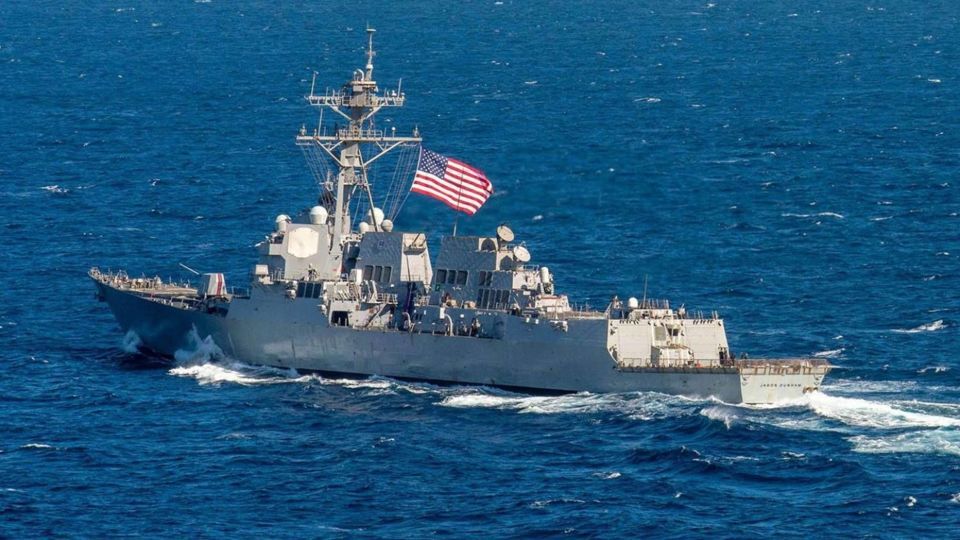Seyyed Reza Mirtaher told the Strategic Council on Foreign Relations that the alleged goal of this maritime alliance is to maintain the freedom of navigation and the security of the ship and to counter the attacks of Yemen’s Ansarollah movement. He said, referring to the US efforts to form a marine alliance in the Red Sea, especially near the Bab al-Mandab Strait.
Mirtaher stated that this issue is directly related to the developments of the Gaza war and explained that “given the continuation of the Gaza war and especially the intensification of the attacks of the Zionist regime against the people of Gaza, their killing and the lack of access of the people of Gaza to medicine, food and even drinking water, Yemen’s Ansarollah tried to prevent the movement of any ship to occupied Palestine, especially the port of Eilat in the north of the Red Sea. Also, these forces have targeted several ships with drone and missile attacks and captured one or two ships.”
According to this expert, considering that at least 12% of the world’s trade takes place through the Red Sea Canal and the Bab al-Mandab Strait, this issue is intolerable for Westerners, and it was already predicted that the United States would react if Yemen continued this action.
Mirtaher continued that “Abdul Malik al-Houthi, the leader of Ansarollah, has clearly stated that they are ready to confront America and Israel and have no fear.” This is despite the fact that the Americans refused to intervene in the war in Yemen earlier during the Saudi coalition war with Yemen, despite Riyadh’s repeated requests, and even removed the Ansarollah movement from the list of terrorist groups at the beginning of Joe Biden’s presidency in 2021.
This expert on strategic issues said that “it seems that today grounds are being paved for the American military and the US-led coalition to confront the Ansarollah movement. If the situation continues in the same way and the Ansarollah movement insists on not allowing the passage of ships to occupied Palestine, especially the port of Eilat, this issue will undoubtedly lead to the reaction of the Westerners.
He emphasized that “currently, the western military vessels and warships stationed in the Red Sea, whether in the south or north of the sea, are duty bound to intercept drones or cruise or ballistic missiles that are fired from Yemen towards occupied Palestine; If this issue becomes aggressive, considering the presence of the Eisenhower aircraft carrier in the vicinity of Yemen, it is expected that the United States will start airstrikes against various targets in Yemen.”
Referring to the positions adopted by the Ansarollah movement, Mirtaher said that, apparently, they have no fear of going to war with the US. It can be predicted that these attacks by the United States will not prevent Yemeni attacks from continuing and making the Red Sea unsafe for ships and oil tankers or commercial ships that are heading towards Israel.”
The expert on strategic issues emphasized that this will lead to increased tensions in the Red Sea region and the Bab al-Mandab strait and will continue to lead to the risk of spreading conflicts in the entire region.
He went on to emphasize that the US has formed coalitions without the permission of the Security Council many times and said, “For example, two coalitions, ACOS and QUAD, have been formed in the Asia Pacific region with the presence of the countries of that region and the UK to confront China. The important point is that according to the previous resolutions of the Security Council, this body basically does not recognize the Ansarollah movement or the government based in Sana’a as the legal government of Yemen. Therefore, if any war action by this movement takes place in the Red Sea, it will probably not be met with a positive reaction from the Security Council.”
Mirtaher added that “considering that for China, as the largest exporting country in the world, safe traffic in the Red Sea is a priority for commercial and economic and even geopolitical considerations of this country, it can be predicted in the event of a conflict or referral of this issue to the Security Council, most likely, if it does not face Russia’s veto, we will see a statement from the Security Council in this regard.
This expert concluded that “at the current time, it seems that if the Americans are forced to confront the actions of the Ansarollah movement in the Red Sea, this issue will probably increase military tensions and spread conflicts in the region.”










0 Comments